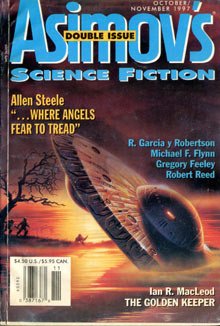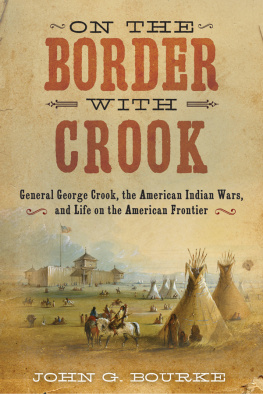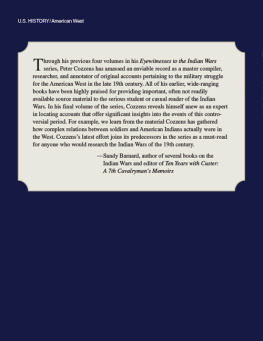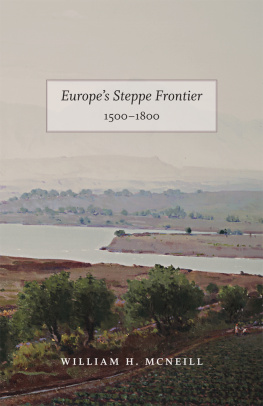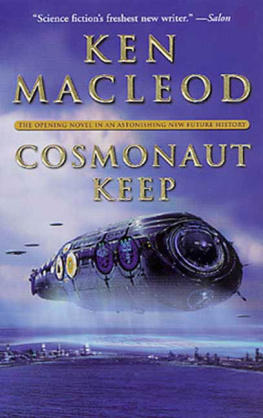THE HISTORY OF CIVILIZATION
THE AMERICAN INDIAN FRONTIER
The History of Civilization
General Editor C. K. Ogden
The History of Civilization is a landmark in early twentieth Century publishing. The aim of the general editor, C. K. Ogden, was to "summarise in one comprehensive synthesis the most recent findings and theories of historians, anthropologists, archaeologists, sociologists and all conscientious students of civilization." The History, which includes titles in the French series L'Evolution de l'Humanit, was published at a formative time in the development of the social sciences, and during a period of significant historical discoveries.
A list of the titles in the series can be found at the end of this book.
First published in 1928 by Routledge, Trench, Trubner
Reprinted in 1996 by Routledge
Reprinted 1998, 1999
2 Park Square, Milton Park,
Abingdon, Oxon, OX14 4RN
&
270 Madison Ave,
New York NY 10016
Transferred to Digital Printing 2008
Routledge is an imprint of the Taylor & Francis Group
1996 Routledge
All rights reserved. No part of this book may be reprinted or utilized in any form or by any means electronic, mechanical, or other means, now known or hereafter invented, including photocopying and recording, in any information storage or retrieval system, without permission in writing from the publishers.
British Cataloguing in Publication Data
ISBN: 0-415-15610-6
ISBN European Civilization (11 volume set): 0-415-15616-5
ISBN History of Civilization (50 volume set): 0-415-14380-2
Publisher's Note
The publisher has gone to great lengths to ensure the quality of this reprint but points out that some imperfections in the original may be apparent
TO
EDWARD SHERWOOD MEAD
Preface
I
EVERY frontier has two sides. Its movement forward or backward is the consequence of two sets of forces. To understand fully why one side advances, we must know something of why the other side retreats.
This volume represents the first attempt at an analysis of American frontier history made particularly from the viewpoint of the Indian side of the frontier development.
Being an essay in the "New History," a socio-histoncal enterprise, emphasis is placed upon institutional evolution. And inasmuch as North American developments of the seventeenth and eighteenth centuries are capable of intelligent interpretation only in the light of earlier developments on New World and Old World frontiers, ample consideration is given to those earlier developments, despite the fact that this volume is placing its emphasis on North American evolution.
My use of the term "North American" contrasting with the term "Latin American" to mean, merely, that part of North America not under Spanish administration at the time, is arbitrary, but is useful and convenient, and is never so used that one would be misled by the context.
II
North European Indian policies in North America gradually led the aborigines to moral and physical eclipse. There is much truth in the old saw, that the early colonists first of all fell on their knees and then fell on the aborigines. Equally true is the saying that the colonist approached the native with a dced of sale for land in one hand, which the native was voluntarily to sign; while in the other hand and under the arm, were a Bible, a bottle of rum, and a gun.
These old sayings, of course, conjure up mere inanimate portraits. They do not present to us any of the complexes of thought and feeling which conditioned the approach of the two races. We will discuss the development of attitudes and policies on the frontier, and see these at work in something of a chronological order, decade by decade.
The development is one of tragic irony. The policies of the North Europeans were policies of peaceful penetration, motivated largely by the desire to avoid the expense of forcible penetration. Nevertheless, the peaceful penetration policy had its interludes of sanguinary struggle, interludes which brought no finality and after each of which firearms were again distributed to the Indians, rum was sold, land was purchased, treaties were made, and smallpox and other plagues continued toward the extermination of the natives.
We should not underestimate the historical significance of the early colonial Indian wars. Sometimes, it appears, even in colonial days, Europeans affected to underestimate their importance, for Cotton Mather, writing a history of recent Indian Wars in New England, in 1699his Decennium Luctuosum or Dolorous Decadewas moved to say: "And if a war between us and an handful of Indians do appear no more than a Battle of Frogs and Mice to the world abroad, yet unto us at home it hath been considerable enough to make a history." Today, in retrospect, these wars appear significant enough in American History to absorb many pages of this book.
Further, I give some space to the personal aspects of many situations, such as certain massacres, for example. The story of the American frontier reeks with too much romance for us to let it all slip by, even in a presumably scientifie treatment.
Too readily do we forget when we dwell of an evening over the mystery of Rene Maran's Batouala, or Joseph Conrad's Heart of Darkness , and other stories of the black, mystery-continent of Africa, that North America was for long a Dark Continent. And for a longer time, the heart of this continent was dark. The far-flung agents of frontier enterprise in early Virginia felt this, as did the early explorers in the dense wood-lands of the Ohio region. For a time the Potomac, and for a longer time the Ohio, were Congos.
It was so different, this now railroad-littered continent, in those early days, particularly in its now-vanished, great, silent, towering, virgin forests, and in many awesome strange creatures now scarce or exterminated.
Had one sailed in these ancient daysbut no later than 1614past the "Island-Where-We-All-Became-Intoxicated on to the islands in Boston harbour, one would have found the great auk (now universally gone the way of the dodo) standing in numbers, looking lazily eastward to the sea, waiting perhaps for the tragic St Mal to come to baptize them. Had these great penguins, before the French traders of those pre-Pilgrim days killed them off, looked westward far chough, they would have seen the California condor flapping his great spread of wings, trying to warn them that America had indeed been discovered, and that not only saints, but saints and sinners, were on their way.
III
Let us hope that the treatment of the whole subject is free from sentiment. Considerations of the American Indian in history have usually reeked of it. Tacitus nearly two thousand years ago sentimentalized the Germans in his Germania, but the Germans since 1871 have at last appeared eminently human with all the frailties of humanity.
The very irritating idealization of the American Indian was initiated by Montaigne of the famous Essays, published in 1580. He had met some Iroquois ambassadors at the Court of Charles IX of France and talked with them through an old frontiersman of New France. His rhapsodies were in time to be taken up by La Hontan, who should have known better but who had a publisher and a public to please; by Rousseau; and, lastly, by every one of the thousands of speeehmakers and writers who shed tears over the American Indian in nineteenth-century North America.




